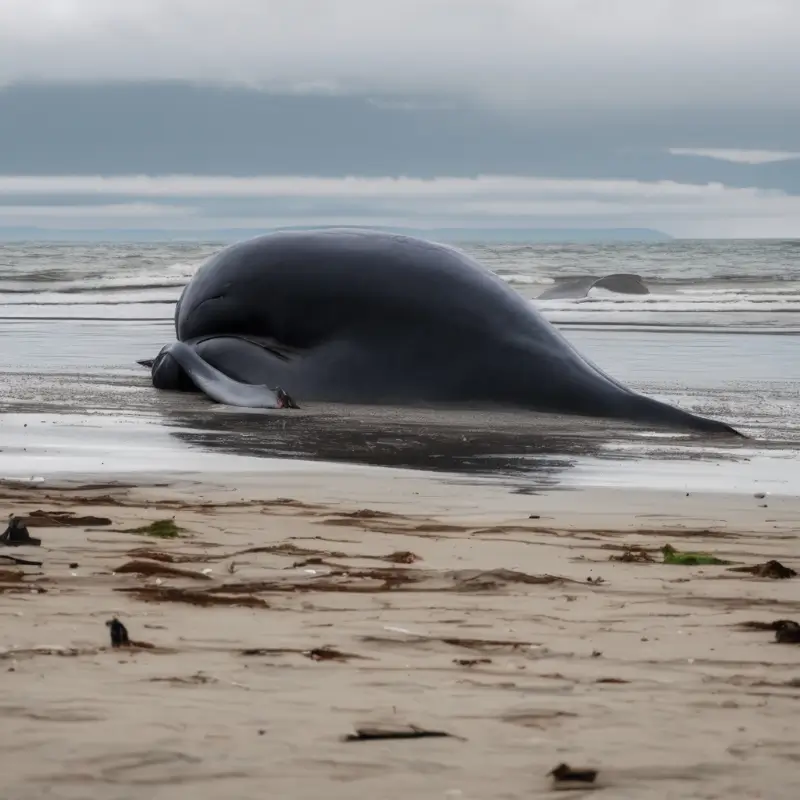why do whales beach themselves?
Whales beach themselves for a variety of reasons, and it’s often a complex issue with multiple factors involved. Some of the common reasons include:
- Navigation Errors: Whales navigate using sound, which can be disrupted by various factors such as shipping noise, sonar, or other underwater sounds. In some cases, these disruptions can lead a whale to mistake the shore for open water, causing it to beach itself.
- Hunting Strategy: Some species of whales, like the humpback whale, use the beach as a hunting ground. They may intentionally beach themselves to feed on fish that are washed onto the shore or to give birth in shallow waters.
- Illness or Injury: A whale that is sick or injured may beach itself as a way to rest or because it is unable to swim effectively in open water.
- Starvation: In some cases, whales may beach themselves due to starvation. They may be searching for food in areas where prey is scarce, and their weakened state can lead to them getting stranded.
- Social Behavior: Some species of whales are known to follow others. If a lead whale beaches itself, others may follow, thinking it’s a natural behavior or part of their migration route.
- Migration: Whales that are migrating can sometimes become disoriented by environmental changes or navigational errors and stray too close to the shore.
- Natural Behavior: Some whale species have been observed beaching seasonally for reasons that are not fully understood. This behavior may be related to feeding, mating, or giving birth.
- Human Interference: Activities such as fishing, ship strikes, and pollution can also play a role in causing whales to beach themselves. For example, a whale might become entangled in fishing gear or be struck by a ship, which can lead to injury or death.
It’s important to note that whales are protected under various international agreements, and efforts are often made to help stranded whales. When a whale is beached, it’s a critical situation that can lead to the animal’s death if not addressed promptly. Marine mammal rescue organizations and local authorities often respond to strandings to assess the situation and, if possible, return the whale to the water.



